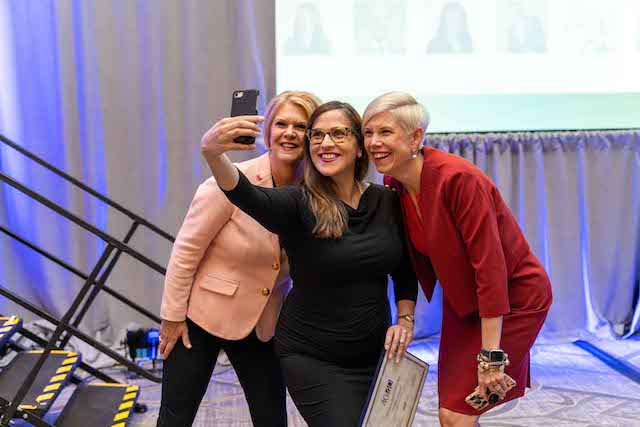CEO Corner: Learnings from the 40 Under 40 Class of 2018
Alice Ayres, MBA
Published: 11/14/2019
 Pictured above is Sophia Ahmad, one of the 2019 40 Under 40 winners.
Pictured above is Sophia Ahmad, one of the 2019 40 Under 40 winners.
At this year’s AHP International Conference in October, I had the true pleasure of moderating a panel of four of the 2018 40 Under 40 winners:
-
Megan Tregunno, CFRE, Vice President, Philanthropy, Centre for Addiction and Mental Health (CAMH) Foundation, Toronto, ON
-
Colin Hennigar, Vice President of Major Gifts, SickKids Foundation, Toronto, ON
- Roel Yambao, MSHA, Chief Operating Officer, AdventHealth Foundation, Orlando, Florida
- Erin Stitzel, FAHP, CFRE, Principal Consultant, Accordant Philanthropy, Columbus, Ohio
We covered a number of really interesting topics, and I found myself impressed all over again by their wisdom, their poise, and their accomplishments. Here are a few things I learned from them:
The Importance of Mentorship
All four talked about the importance of mentors to your career and your growth.
Colin noted his mentors often don’t know they are serving in that role, saying he looks forward to going to meetings where the lead person in the room is someone he knows he can learn from. He pays attention not only to what is being said, but also how those individuals say it, and how they manage the meeting itself.
Megan advised that when you ask someone to serve as a more formal mentor, you should include what it is specifically about the person that compelled the ask. Is it their career trajectory? The way you have seen them address difficult situations? Their poise in front of an audience?
In addition, she says to be specific about what you are hoping for. Is it coffee once a quarter, or do you need their help preparing for an important meeting? Is it career advice as to your next step or a step five years from now?
She also pointed out the different roles between a mentor and sponsor in your career journey, and why you need them at different times. Mentors give you advice directly, where sponsors talk about you and build you up when you’re not in the room.
What Leadership Looks Like
The most interesting part of this section of our conversation was how expansive was the group’s definition of leadership. We can and should think of leaders across a wide variety of definitions, and learn from them all.
Erin focused on how critical it is to learn from leaders across generations. She defines leadership not as those with the senior hierarchical titles, but those who influence, show courage, and think new ways throughout an organization. She encouraged everyone in the audience to embrace being the youngest person in the room. Her advice was to remember that you are there for a reason: your input and your performance makes you a leader and that means you have important and valuable things to add to the conversation. More senior people learning from more junior people is equally valuable to more junior learning from more senior.
Roel keeps a leadership journal in which he catalogues things he learns from leaders he respects, or ways in which his own style of leadership develops. He finds that he returns to this journal for inspiration when he is facing a leadership challenge, or to observe how his own leadership style has grown.
One piece of advice?
I asked each of them for a piece of advice they would give to their colleagues, and thought each was worth repeating here:
- Colin: "Have patience, put in the time to learn, grow and be recognized. You have to prove that you can do this, and that takes time to take on challenges and return great results. Trust the process."
- Erin: "Don’t be afraid to be the youngest person in the room. Own it!"
- Megan: "Once you learn that fundraising is not about money, you’ve nailed it. This work is all about aligning values first."
- Roel: "Ask for opportunities. Look for ways to stretch yourself, and to learn new and different skills. If you build a trusting relationship with your boss, and a circle of mentors in your organization, they can help you find those opportunities and advocate for you."